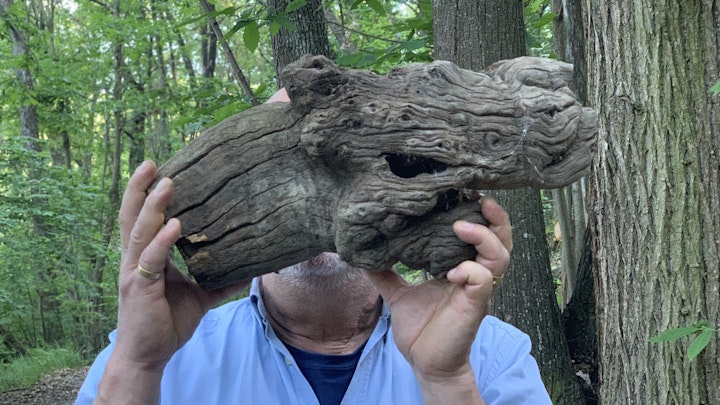and yet the relation appears | claudia losi
pianpicollo research residency 020
Early reflections
The Speech of Animals and Plants. / Each species comes, of course, / with its own dictionary. / Even a simple “Hi there,” / when traded with a fish, / makes both the fish and you / feel quite extraordinary.”
Wislawa Szymborska, “I’m Working on the World” in Calling out to yeti.
These verses were sent to me by a friend, towards the end of May 2020, as I remember, as a way of being together in a common space, in such a unique time. I had mentioned about the weeks I spent as a resident in Pianpicollo Selvatico, and about the impossible trips there in those months of spring. I wrote to her about the wish to go back up there. Coming back to “a temporary home of mine, a refuge where silence wouldn't be the silence of waiting and sirens”.
And yet relation appears,
A small relation expanding like the shade
Of a cloud on sand, a shape on the side of a hill.
W. Stevens, Connoisseur of Chaos
When I visited this place for the first time I thought I would take long walks. I would explore the area to go back there, after meeting new places, stories and people. But no, I haven’t taken any path that could take me far. I stayed there. I moved around close by. Something was asking me to stay, look, listen. An active way of staying, soothing.
Last year, I spent time in the intensive care ward of the Ospedale Maggiore in Bologna, once every two months. I was invited to think about a project to realize together with the medical team, which could engage everybody in the ward, from the head physician, to the psychologist, doctors and nurses. And also some relatives of people who healed, that I could meet there. The people who invited me didn’t know what to ask and I knew what to suggest even less. My proposal arrived in the second week of February (2020). I wanted to walk with each one of them, ask them a few engaging questions, draw their feet on the paths along the hills around Bologna, tell stories. And then everything was interrupted.
I write about this because the reflection and emotional charge emerged from this experience were intertwined with the meetings in Pianpicollo. Words like care, therapy, taking charge, empathy, trauma and reparation, reciprocity and otherness, body and life, have developed an intensity and complexity of meaning.
The question to ask patients, to make oneself present as a human and not only as a ‘fitter’, is “how are you feeling?”, and not “how are you?”…. When asked “How are you feeling?” we listen to the echo of our own body.
Life always exceeds the form, shape, body, even and the species it inhabits. Emanuele Coccia, 2019.
At the beginning, I thought about Pianpicollo – its location, stone walls, the fields and woods around it, the animals, including humans inhabiting it and passing by it – as an organism made of interdependent elements, functionally related to each other. An organism to read as an ecological, cultural and social system. And also biological.
The body of a patient, in Intensive Care, is pure biology: a body that has to function, mechanically. And yet, even in this context we talk about biomedicine. Medicine of life, that looks at the patient in her entirety, and her emotional complexity.
As a multifaceted organism.
Repair. Bring reparation. To the body, to the world.
To repair is also to regenerate… not knowing exactly what is the perfect form. Try to fix. But not in a definitive way. We move towards a temporary equilibrium.
To move in this organism remembering that our body becomes a measure of the world. Our body, there. With that light, and that wind and on that steep land.
In relation with and around our body “extension organizes itself as a system” (Paul Zumthor).
In this organism-landscape "The animals of the minds can’t be scattered so easily" (J. Berger).
Hospitality like pilgrimage is first of all being open to dialogue, accepting a promiscuity that is meant to change you (R. Marchesini).
Our way of being in the world: host and being hosted. Animality and intraspecies dialogue. These are also themes that are inextricably linked to the experience that I am living, with the passing of seasons and in the midst of this backdrop of doubt and uncertainty that the pandemic has laid out on our every experience. And who knows for how long and with what long term effects.
For this reason questions like how do we relate to the Other, being it animal, plant and inanimate, how do we relate with the macro organism which contains us and make us being, are inescapable.
(…) Darwinian evolutionism entails as a consequence that human beings and other species come from common progenitors. We are then the result of this shared history (…). Thus, animals not only host our biological and specific characters, but also our culture: other species inhabit our cultural dimension. Animal epiphany is like a revelation: flying is possible, and this “possible” is the tiniest seed of cultural expression.
R.Marchesini Ospite
Over the next months I would love to continue with these reflections, intertwining my words with the ones of a guest that has shared with me some of these “pilgrimages” in Pianpicollo, Mauro Sargiani. Our dialogues will revolve around these macro themes.
And anyway, there is no healing without beauty.
September 2020
§§§
Pianpicollo Research Residency is a program funded by Fondazione Cassa di Risparmio di Cuneo and Regione Piemonte
in collaboration with Politecnico di Torino








